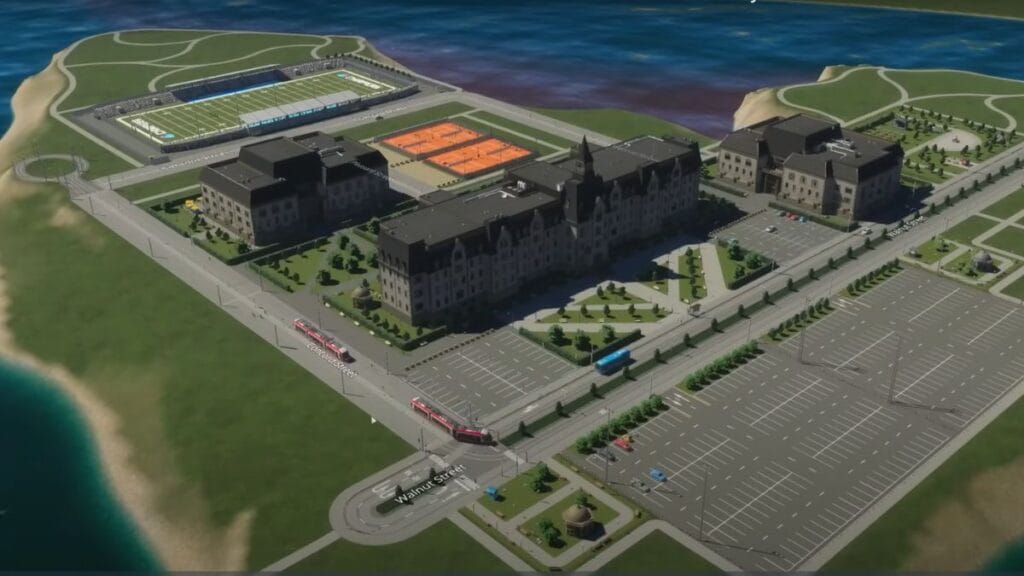Skip To...
Similar to real life, education plays a significant role in Cities: Skylines 2 for the growth and development of your city. Because education serves as the bedrock for societal progress, a more educated population in your city will ensure a robust workforce, fueling your commercial and industrial sectors. Knowledgeable workers can fill high-level positions and drive growth. Understanding the Education System in Cities: Skylines 2 is crucial for achieving a well-balanced and prosperous city.
Implementing an Effective Education System in Cities: Skylines 2

There are five levels of education in Cities: Skylines 2: Uneducated, Poorly Educated, Educated, Well Educated, and Highly Educated. You need to build Schools and Universities to cater to each level of education in your city. Each type of building, except Libraries, provides one level of education, as below.
- Elementary Schools: Children can attend elementary schools and will be considered poorly educated once they have completed the elementary level.
- High Schools and Colleges: Only teens can attend High Schools and become educated citizens. Both adults and teens can go to colleges where they will reach a well-educated level once they graduate.
- Universities: Adults can go to universities and become highly educated once they have graduated from these universities.
- Libraries: Libraries do not directly increase the education level of sims in Cities: Skylines 2. But they support the education of citizens.
There are various building options for each education level, and they each cost a different amount. Choose carefully considering the population and budget of your city.
Budget and Policies of Education in Cities: Skylines 2
You can set the City Budget for education from 50% to 150%. Also, there are some policies you can implement in your city, such as Education Boost, Educational Blimps, For-Profit Education, and School’s Out. Each of these policies will impact the city’s education positively or negatively. Also, it would be best to consider that when you make a policy, it will come up with a cost. As an example, if you implement the Education Boost policy, it will encourage your citizens to have education over employment. However, it will increase your city budget.
How Education and Employment Works
Education and employment are key factors when progressing through Cities: Skylines 2. If you ignore the education level of the citizens, you might notice that a lack of educated workers messages are popping up from your industry zones, leading to underproduction. Therefore, maintaining a sound education system throughout the city is vital to attracting high-end industries that need more educated citizens.
However, in the end, each decision impacts the city budget differently, so each step you progress in the game demands you make the correct decision to optimize your city budget.







